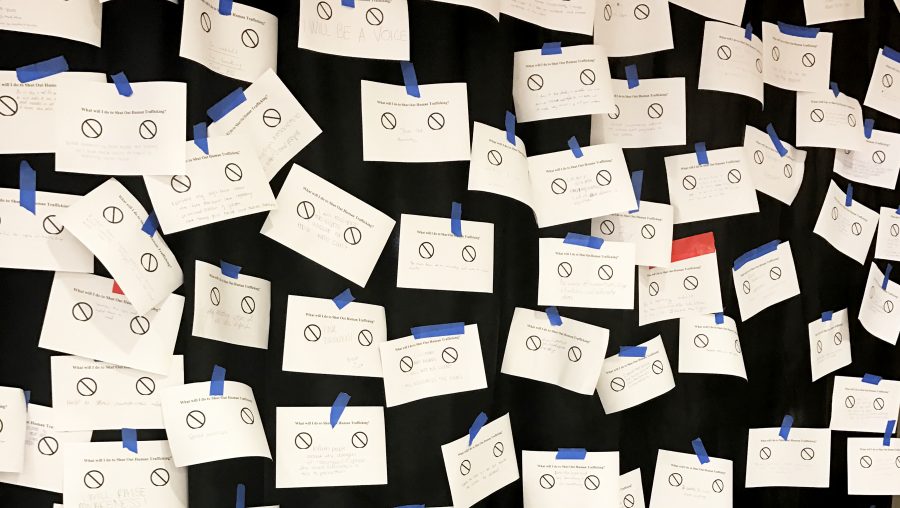Signs of simple cardboard hung across the Ferguson Center all with one basic message: human trafficking must end.
On Tuesday, students gathered to participate in an educational event to inform the public about the size and scope of the human trafficking business. Spreading the message that “No one is free until we are all free,” the group Shut Out Human Trafficking aimed to show how pervasive the problem is in 2017.
According to End It Alabama, 79 percent of human trafficking cases in the state have been reported as sex trafficking, with 14 percent reported as labor trafficking.
Bailey Chandler, graduate student and an advisor of Impacting Teams, has noticed human trafficking as an issue while working closely with UNICEF and the Center for Service and Leadership.
“It’s just something that I don’t think students especially think about all the time,” Chandler said. “We see individuals in poverty, we know that there are individuals without food, there are students not getting proper education, and those are all great causes. But I think human trafficking is something that we don’t immediately think of as a cause that we can impact, but we can.”
Chandler said she is passionate about the issue because she wants students to know they have a voice and can take action to stop it.
The event was set up with black curtains surrounding the area near the stairs in the Ferguson Center. Inside the curtains, areas were sectioned off for various activities. One area had people’s testimonies posted on the curtain with a red light shining to symbolize human trafficking. Elsewhere, computers were set up for interactive activities, and a large map contained stories pinned on almost every state.
Maggie Chapman, a sophomore majoring in social work, believes human trafficking is a big issue because it effects all 50 states.
“The idea of human trafficking is that it would not exist if there was not a demand; it’s humans demanding humans,” Chapman said. “It’s a system that we’ve created and we’ve cultivated, and we let it happen. We are just blind to the signs sometimes.”
Chapman said there are exponentially more slaves nowadays than when there was an actual slavery system in America years ago. She said the lack of awareness is not due to the apathy of college students, but rather that most people are simply unaware of the 150 billion dollar industry that surrounds everyday life.
“It’s a lot harder to turn away from a subject when you know about it and know the facts,” Chapman said. “I think this campaign is so needed on our campus because our school is so big and we have such national excellence, that I think that we can take a stand against something like human trafficking and really make a difference.”







